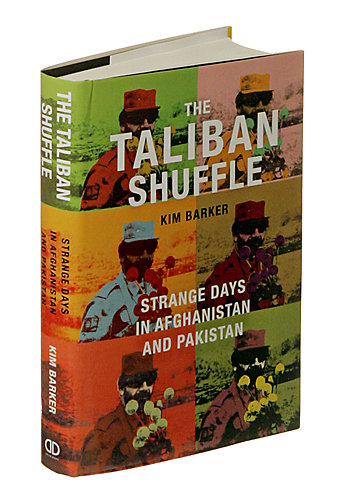I never heard of Kim Barker until just a few days ago when I caught her interview on NPR. Who is Kim Barker? She is a reporter at ProPublica and served as the South Asia bureau chief for The Chicago Tribune from 2004 to 2009. And now she has written an account of her experiences covering Afghanistan and Pakistan in a book titled “The Taliban Shuffle.” According to New York Times writer Michiko Kakutani, Barker’s book “…manages to be hilarious and harrowing, witty and illuminating, all at the same time.”
Barker’s experience working as a female reporter is hauntingly similar to Jo’s experience as a female Peace Corps worker nearly 50 years ago. Barker speaks of the poverty, mistreatment of women, and general misery of the Afghan people–juxtaposed with the western lifestyle of American and European journalists; the parties, and the alcohol. We drank partly to “numb ourselves” against what we saw every day, she said.
As far back as 1968, Jo Carter also witnessed the plight of the Afghans, along with the foreshadowing of the Russian invasion of 1979. She comes across the body of a dead soldier, left to rot in the roadway, and the incident is captured in the book, “Little Women of Baghlan.”
Jo hardly remembered the rest of the ride to Puli-Khumri, or how they met up with a group of vaccinators stationed there. She only knew it had been a very disturbing experience, and yet, as they had a few drinks and something to eat with the Puli-Khumri Volunteers, the incident became daring and exciting—a story with overtones of international intrigue. They thrilled to the sensationalism of it all, and repeated the story again and again, each time with more braggadocio and swagger. A few more drinks, and they were making jokes and laughing.
Barker also speaks of the female journalists, and how they are considered a “third gender” among the Afghans, something akin to Jo’s experience.
“The peculiar gender distinction was something she (Jo) had grasped almost as soon as she arrived in Afghanistan. She traveled alone, with her head uncovered. Therefore, she didn’t fit the traditional perception of female. She certainly was not male. What was she then, but an entity somewhere in between? And so, out of necessity, the Afghans devised a convenient niche that placed Western women into a category of their own—a third gender—with the rights and privileges of Afghan men. As such, Jo and the other female Peace Corps Volunteers moved about freely in Afghan society.”
Above all, Kim Barker is impressed with the generosity and hospitality of the Afghan people. She alluded to the fact that the Afghans would invite her into their homes, and treat her like a long lost relative. I was happy to hear that has not changed–Jo shared countless meals and cups of tea with her students and families.
Lastly, I think both women fell in love with the country itself. Jo’s first impression of Afghanistan was from the plane window:
The land mass beneath her appeared creased and folded: millions of tons of earth and rock that had been crushed and crumpled like so many pieces of discarded paper. The ridges were bleak and unadorned with vegetation; shades of brown deepened to a blue haze in the narrow valleys. Jo felt a shiver run up her spine, a thrill at being in the presence of the Hindu Kush.
Of course there are differences between Ms Barker and Jo Carter. One went with the intent of learning everything about Afghanistan, the power and politics that ruled the country, and reporting on the news without bias; the other went with instructions start a nursing school, and not become involved in politics. The Volunteers were instructed to:
…make Afghanistan their home. They would shop at the local bazaars, eat the same food, and have the same necessities of daily life as the ordinary Afghan citizen. They were expected to become part of the community, not maintain an American lifestyle with imported goods and amenities.
A print version of Michiko Kakutani’s review appears on March 15, 2011, on page C1 of the New York Times edition with the headline:” Battle-Zone Absurdity and Adrenaline-Fueled Folly.”
Barkers’s book has been made into the movie “Whiskey Tango Foxtrot” starring Tina Fey, due for release March 4, 2016.
To see Michiko Kakutani’s full review, click on the link
